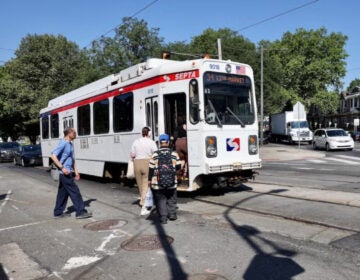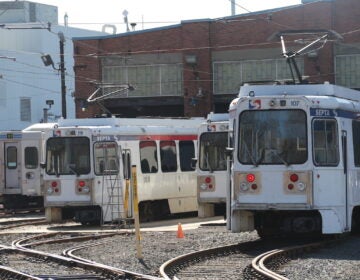School District’s plan to cut student passes appears to be much ado about nothing

Though the SEPTA Board unanimously passed a $1.2 billion operating budget and a $311 million capital budget for the next fiscal year at its Thursday meeting, that didn’t stop a budget controversy from surfacing.
A group of parents led by activist Helen Gym asked the authority for information regarding SEPTA’s sales of transpasses to the School District of Philadelphia.
One of the cuts the district has proposed to close its more than $620 million projected shortfall would eliminate the free passes.
Gym said that free school transporation is “fundamental” for a good education and noted that the one third of Philadelphia school children who live in poverty will have a difficult time paying for SEPTA transportation.
The free transpasses are “directly correlated” to high school attendance, she said.
But SEPTA officials made clear that, as far as they understood, these cuts wouldn’t actually save the district any money.
As general manager Joe Casey explained it in a meeting following the Board hearing, the district gets all of the money it spends on passes ― $33.5 million this year ― reimbursed by SEPTA and the state.
According to a 2007 agreement with the School District that Casey helped negotiate, SEPTA provides passes to the district at a 26 percent discount. The School District then gets 85 percent of its costs ― $30.4 million, this year ― reimbursed by the state Department of Education.
That funding wasn’t cut under Gov. Corbett’s proposed budget.
The remaining amount is paid for in the form of a quarterly credit SEPTA gives the School District for managing the pass program and distributing passes to students.
All told, the setup is designed to be “cost neutral to the School District,” he said.
Casey added that the School District told him that the timing of state reimbursements is behind the proposed cuts ― the district doesn’t have enough cash on hand to make its monthly payments to SEPTA.
He and other top SEPTA officials have a meeting scheduled with the School District on Friday, and he said they would attempt to work the problem out. Casey also said that SEPTA would be willing to alter the timing of its invoices to allow the program to continue.
“This is a minor problem causing a big issue,” he said, adding that “I don’t know why it was on the table in the first place.”
Gym and other parents said they would follow up with the School District.
The district couldn’t immediately be reached for comment.
Separately, Tom Dorricot, a labor representative for SEPTA’s regional rail engineers, asked the SEPTA Board to end the authority’s attempt to force engineers to wear fluorescent safety vests.
As first reported in The Philadelphia Inquirer, SEPTA instituted the practice shortly after the killing of Osama bin Laden, saying the vests would allow security personnel to correctly identify engineers in an emergency situation.
But the engineers, who work without a uniform, argue that the vests make them targets for terrorists and are a back-door way of forcing the engineers into uniform.
Dorricot said the engineers would prevail in a labor grievance against the vest, wasting money and time.
“Let’s work something out that works for everybody,” he said, noting that the engineers have offered to wear identification on a less-conspicuous lanyard around their necks.
Contact the reporter at acampisi@planphilly.com
WHYY is your source for fact-based, in-depth journalism and information. As a nonprofit organization, we rely on financial support from readers like you. Please give today.






